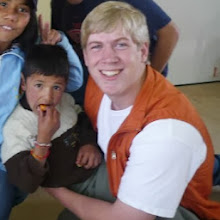Man, 'confined by a nature that must die,' confined by this evidence of his sin, the evidence that you rebuff the over-weening, yet man would still appraise you, since you made us tilted toward you, and our heart is unstable until stabilized in you.This quote, famous in it's own rite, is telling of Augustine's belief in the inborn dependence of humanity on God for fulfillment from the very beginning of their being. As he contemplates his very existence he first becomes familiar with the reality that there is a God, and he is not Him. Not only is he not him, but he can not contain him or relate to him- quite the conundrum.
In his search to see who the true God, Augustine recognizes and points out the 'graces' in his life. Such as a child draws to the breast of his mother is the relationship of man to God. Augustine praises God for his creating him in a manner by which he will do that and find sustenance. Augustine uses his infancy as a metaphor for relation to God in general. He says,
Who is there to remind me of my sin before I spoke?--'no one being clean of sin, not a speechless child with but a day upon the earth'-- who will remind me....A powerful, and controversial it seems, statement on the human condition. I certainly agree with Augustine in drawing this analogy. Such as the infant must rely upon the breast of his mother, so we rely on God. Yet, as he said in the aforementioned quote, man is 'confined by a nature that must die', making it rebel against the very 'breast' that sustains it. So it seems, Augustine is right in drawing the analogy that it is the grace of God that draws us to himself, such as it is the care of the mother that draws the infant to feed. Obviously, most skip their infancy in biographical writing, seeing as we don't remember it firsthand. That said, I think Augustine's using it to foreshadow his coming spiritual revolution that was much the same is profound.

No comments:
Post a Comment